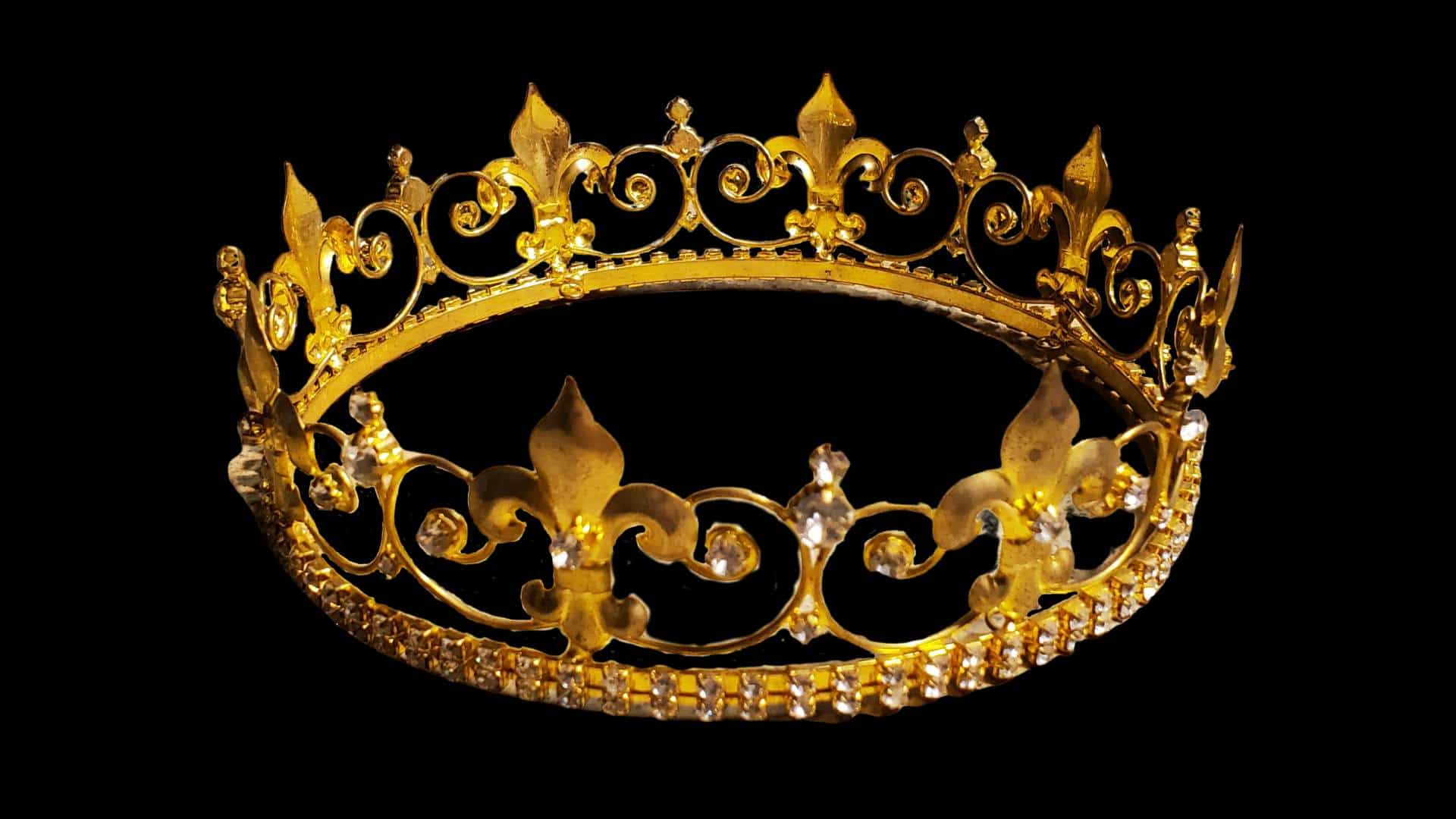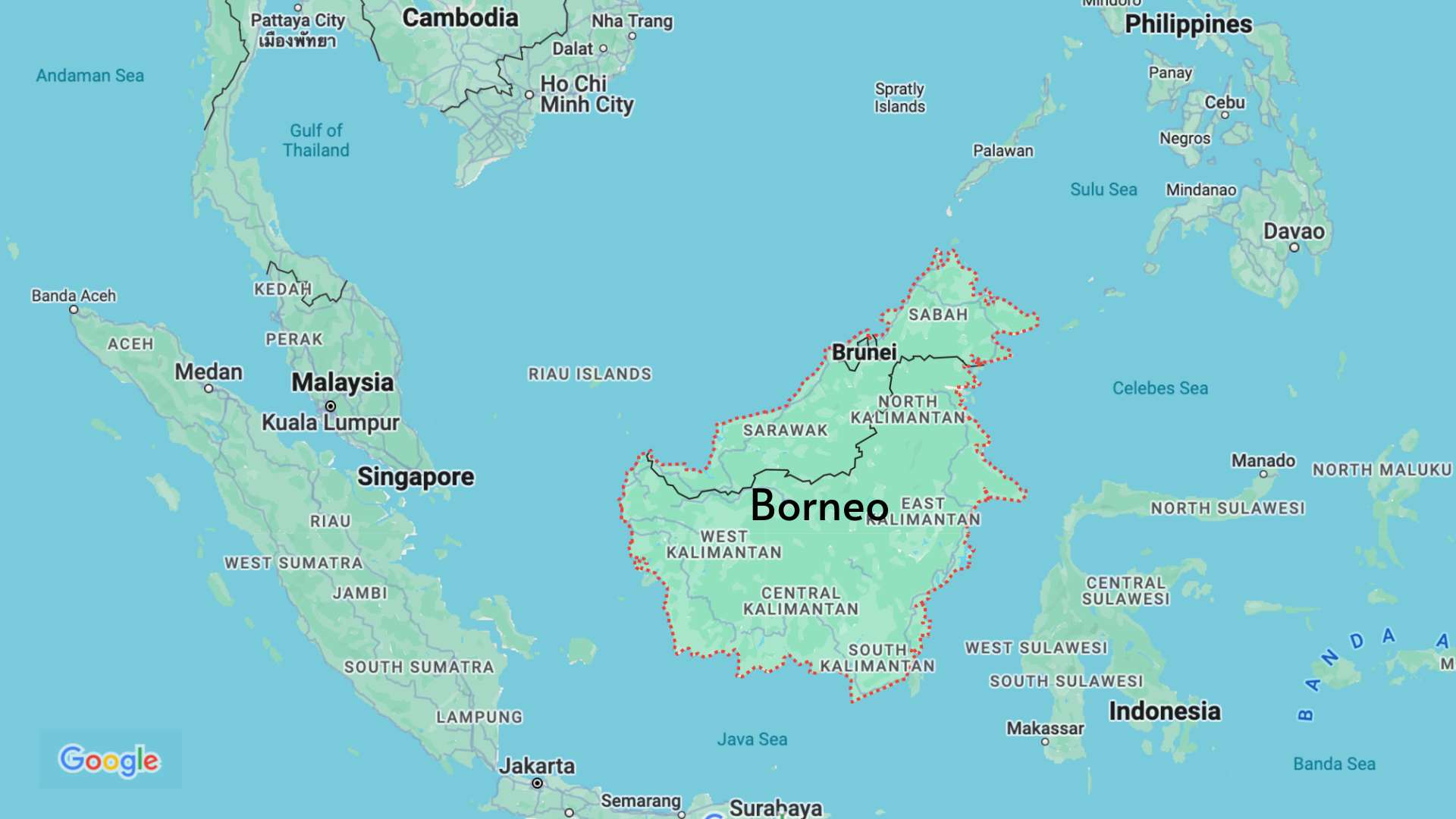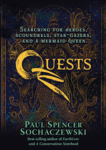There are tales in history of common folk becoming supreme rulers. How difficult is that to do?

This article was produced exclusively for News Decoder’s global news service. It is through articles like this that News Decoder strives to provide context to complex global events and issues and teach global awareness through the lens of journalism. Learn how you can incorporate our resources and services into your classroom or educational program.
How does one become king or queen of a country when not born into a royal family?
Consider the life and times of Alexander Hare, known by some as the First White Rajah of Borneo.
Hare was an ambitious 19th-century diplomat, slave-owner, harem-builder and political arriviste who became self-declared de-facto sovereign of a small chunk of swamp land on the southern tip of Borneo, an island that is today split between the nations of Malaysia, Indonesia and Brunei.
Unlike more famous British nobles, Hare left behind no monuments, no lasting social innovations, no glittering palaces, not even a flattering “swagger portrait.” He was not a patron of the arts nor was he keen on landscaped gardens. What he did leave were hundreds of illegitimate children and thousands of miserable slaves.
Hare was an English merchant who joined a trading company in Portugal around 1800, then moved to Calcutta several years later where, according to legend, promptly set up housekeeping with a 14-year-old dancing girl named Dishta.
Then, in the Malaysian port of Malacca, Hare met Stamford Raffles, soon to be the lieutenant governor of the Dutch East Indies. Raffles sent Hare to southern Borneo in 1812 to become political commissioner of the government to oversee the activities of one of the region’s prominent sultanates.
But according to Tim Hannigan, author of “Raffles and the British Invasion of Java,” “the truth was that under Hare, Banjarmasin was reduced to poverty, disorder and unprofitability.”
How nations begin
Countries are created and destroyed all the time.
The United States, of course, didn’t exist before 1776, and it has undergone numerous geographic changes since. Italy didn’t exist before 1866, and even then, it was missing Rome, which joined in 1870.
A vast swath of African and Asian countries were mere pink blotches on the straight-lined colonial maps before the post-World War Two period, and the 1990s breakup of the Soviet Union and Yugoslavia created nation-building opportunities for many territories that previously were known only to geographers and stamp collectors.
The United Nations had just 99 member states in 1960, but this number expanded quickly — South Sudan became the 193rd and most recent UN member in 2011.
New countries require leaders, whether they be presidents, kings, emperors or lord high executioners.

Map of Borneo
Start out small
How difficult is it to create a new country?
The world is awash in micronations, defined by Encyclopedia Brittanica as “an entity that claims to be an independent state but whose sovereignty is not recognized by the international community.”
There is an international convention for being able to call a geographical entity a true country. The Montevideo Convention on the Right and Duties of States, accepted by 198 signatory states and adopted by the League of Nations in 1933, says that any entity that meets its four criteria — population, territory, government and the capacity to enter into negotiation with other states — can be regarded as sovereign under international law.
Note that under the Convention a country does not have to be recognized by other states; it only has to have the capacity to do so.
How might a modern wannabe sovereign follow suit (preferably without installing a harem or dealing in slaves)?
Turns out, there is a recipe. Hire a good PR agent and create a made-for-TV backstory that preferably involves wondrous miracles, military victories and a direct line of descent from a notable divinity. Add a dollop of anti-establishment vigor, a rambunctious sense of humor, and a bucket of renegade bravado and you’re on your way.
According to the World Population Review, there are some 100-400 micronations worldwide.
So, why not give it a go?
A notion of a nation
Some people are already from a noble family and want to move up the royal totem pole. Such was the case with Nancy Valerie Brooke, the third daughter of Charles Vyner Brooke.
Nancy was the third (and last) of Sarawak’s White Rajahs. News reporters dubbed her “The Siren of Sarawak” and “Princess Baba.” She dreamed of buying an island in the Dutch colonies of the East Indies (now Indonesia).
She was going to name it “Babaland,” where “every man would be Rajah.” In his book “Sylvia, Queen of the Headhunters,” Philip Eade quoted Nancy as saying, “We’re going to have a democracy but with a court and things — maybe an aristocratic democracy. I think a country without lots of uniforms and braids is no fun.”
But what options exist for commoners?
About the time that Hare was installing himself and his concubines in Maluka, in 1811 an American whaler named Jonathan Lambert declared himself sovereign and sole possessor of the island group he named the Islands of Refreshment.
The idyllic name for his kingdom was not due to the islands’ swimming pools and piña coladas, but because the islands were transit stops for restocking supplies used by American cruisers sent to prey on British merchant ships.
The islands, now named Tristan da Cunha, are part of the British overseas territory of Saint Helena, Ascension and Tristan da Cunha. They form the most remote inhabited archipelago in the world, lying roughly midway between Argentina and South Africa.
A realm in the desert
A wannabe emperor might heed the advice of His Excellency President Grand Admiral Colonel Doctor Kevin Baugh, the founder and president of the Republic of Molossia. His house and garden near Reno in the U.S. state of Nevada form the nation’s territory. It has 27 people, and boasts a flag, stamps, currency, customs house, radio show and post office.
“First off, use your imagination,” Baugh said in an interview in 2015 on National Public Radio in the United States. “lt’s not necessarily all an imaginary thing, but it does require you to think outside the box when you’re starting your own country. Learn about what other nations do. You know, learn a little bit of history — how countries have started and eventually stopped and, you know, what makes a nation,” he said.
He suggested building on what you already know. “Your flag should represent you and your country — your coat of arms, all that kind of thing,” he said.
In 2015 a Czech named Vit Jedlicka proclaimed the Free Republic of Liberland on seven square kilometers of land that was territory unclaimed by either Serbia or Croatia — a quirk of an ongoing border dispute between the two former Yugoslav countries. Applications for citizenship are accepted only by email, since Liberland does not have a post office.
Making up a micronation
Indian gurus have embraced the nation-building dream.
Maharishi Mahesh Yogi, the creator of transcendental meditation and the guru to the Beatles and Beach Boys, created the Global Country of World Peace in 2000 in the U.S. state of Iowa.
In 2023, Arnoldo Chamorro, chief of staff for Paraguay’s agriculture ministry, was sacked for signing a “proclamation” with representatives of the micronation of Kailasa that supported its admission in the United Nations as “a sovereign and independent state.”
The fictional polity of Kailasa was created and is led by self-styled guru Nithyananda Paramashivam, who is a fugitive wanted in the Indian state of Karnataka on charges of rape.
Its representatives have managed to participate in two U.N. committee meetings and it has entered into cultural partnerships and sister-city agreements with some 30 cities in the United States. Two members of the U.S. Congress even granted Kailasa special recognition.
Realizing royal dreams
Many young girls play at being princesses, but seven-year-old Emily Heaton’s father decided to make her a real princess.
Jeremiah Heaton, who lives in the U.S. state of Virginia, searched online for unclaimed land. He found Bir Tawil, an arid region on the border between Sudan and Egypt that nobody seemed to want.
In 2014 he obtained permission from Egyptian authorities to travel to the rocky patch of desert, some 20-times larger than Manhattan, where he planted a blue flag with a crown and four stars and named it the Kingdom of North Sudan.
“I founded the nation in love for my daughter,” he said.
Another nation-building role model is Lawrence W. Swan, a biologist specializing in the ecology of the Himalayan region. Swan once “seceded” from both the United States and Redwood City, California, protesting the order that he replace — at his own considerable expense — his “perfectly adequate and more efficient septic tank” with neighborhood sewer lines.
State of nothing
Swan anointed himself “Raja” of his own autonomous native-state, which he named the Kingdom of Cooch Nahai, a Hindi name meaning “absolute no have” or the State of Absolutely Nothing.
As the San Francisco Chronicle reported: “Fortunately, [Swan] made a concession to the government’s right of eminent domain and continued to pay his taxes. But that did not stop him from providing Cooch Nahai with everything a small country needs. Cooch Nahai printed its own stamps each year … It had a national holiday, June 21, the summer solstice; a national symbol, the extinct dodo bird; its memorial ‘Tomb of the Unknown Frog’; and the Great Wall of Cooch Nahai, which contained ‘mementos of global travels and conquest.'”
The antithesis to Alexander Hare’s misogynist kingdom is the hardline man-hating Other World Kingdom, a resort/micronation in the Czech Republic, with its own currency, passports, police force and courts. Its goal: “To get as many male creatures under the unlimited rule of Superior Women on as much territory as possible.” To become a citizen, “a woman must own at least one male slave.”
Perhaps I’m insufficiently arrogant and eccentric to start my own country.
But still, it’s a fun exercise. So proudly sing your national anthem (mine is “Jumpin’ Jack Flash”), admire your national flower (Rafflesia), salute your national flag (golf clubs rampant), offer fresh marigolds to your national protective deity (Ganesha), tip your hat to the number-one secondary deity (Dinanukht), establish a national unit of measurement (the smoot) and breed your national critter (tardigrade).
Final step: Print some business cards with your royal crest and a subtle HM for His/Her Majesty.

Some questions to consider:
- How did Alexander Hare become the defacto leader of his own country?
- Do you think someone could do today what Alexander Hare did in the 19th century?
- Is it ever okay for one person to have total authority over a population of people? Why?

Paul Spencer Sochaczewski graduated from George Washington University and served in the U.S. Peace Corps in Sarawak, a Malaysian state on the island of Borneo. He lived in Southeast Asia for 15 years, then moved to Switzerland where he was head of Creative Services at World Wildlife Foundation International. He has written 20 books and more than 600 by-lined articles in publications including News Decoder, The New York Times, Wall Street Journal, Reader’s Digest, Travel and Leisure. He gives presentations about Wallace, and other subjects, worldwide. He is French-American and lives in Geneva, Switzerland.
